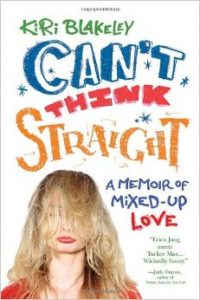Is Your Book Book Club Material? Ask A Book Club!
 Beta readers. How necessary they are, but how hard to find. At least they were for me. I didn’t have that “writing bestie” who was dying to read my copy and who could be that magical combination of brutally truthful yet rah-rah encouraging. Most of my relatives stick to history or political tomes. My friends all had full time editorial jobs and would have rather have their eyes pecked out by crows than come home and read some more copy.
Beta readers. How necessary they are, but how hard to find. At least they were for me. I didn’t have that “writing bestie” who was dying to read my copy and who could be that magical combination of brutally truthful yet rah-rah encouraging. Most of my relatives stick to history or political tomes. My friends all had full time editorial jobs and would have rather have their eyes pecked out by crows than come home and read some more copy.
When the first draft was done, I found some betas on Facebook. Of the six who signed up, four promptly dropped off the face of the Earth. I have no idea if they died or my first paragraph did them in.
After my third draft, I wondered how I could get people to stick with the book – betas had proven not so reliable. During my darkest hours of nerve-jangling insecurity, I took to reading one-star reviews on Amazon as comfort. It seemed anyone who had ever published a book, no matter how popular or lauded, had plenty of readers who thought their writing was pure, unadulterated crap.
But I noticed many reviews that said something akin to, “I would have DNF’d this if my book club hadn’t selected it.” Ah ha! Book clubs. These are people who have made a commitment to finish a book, and have peer pressure behind them to do it. It was almost as if they were held hostage – perfect!
I put out a call on Facebook. Soon I had a book club lined up. I gave them a deadline and offered everyone who finished an Amazon gift certificate as incentive not fade into the ether. I also told them they wouldn’t have to edit or offer me specific feedback – just do their club meeting like they normally would and let me listen in. I wouldn’t say anything. I didn’t want them to feel constrained because the author was eavesdropping. Tip-toeing around my book’s issues wasn’t going to help me improve it.
At least for this book group, wine was a prime ingredient in the event. When I called in, my host informed me in a sing-song voice, “We’ve been drinking!”
What I hadn’t expected is that the members would talk and shout over each other with raucous enthusiasm, making it almost impossible for me to hear what they were saying over speakerphone, and I was reluctant to ask them to slow down and speak clearly as that would remind them I was there. They were on a roll and I didn’t want to interrupt.
I did manage to come away with the realization that the members had some very strong opinions on my book’s main characters – which was good. If they’d just sat there hemming and hawing, twisting in silence, that would have been a big clue that perhaps the novel was going nowhere.
I also picked up through the cacophony of inebriated shouting that my two leads were polarizing, and that the ending caused quite a bit of fuss and debate – both things that were good news. I had meant for the book to provoke discussion – all the better if it was drunken discussion.
 But this was also the first time I was told – in very unadorned ways – that my lead female was coming across as too “victimy.” I had made a concerted effort to make my MC a real person, that is, someone who wasn’t going to behave the way we think we will in our fantasies. She wasn’t going to be someone who would kick-box her way out of a dangerous situation, or always make the savviest choices, the ones that, in hindsight, we wish we’d made. But I didn’t realize her choices were coming across as, let’s just say, somewhat daft. She needed work.
But this was also the first time I was told – in very unadorned ways – that my lead female was coming across as too “victimy.” I had made a concerted effort to make my MC a real person, that is, someone who wasn’t going to behave the way we think we will in our fantasies. She wasn’t going to be someone who would kick-box her way out of a dangerous situation, or always make the savviest choices, the ones that, in hindsight, we wish we’d made. But I didn’t realize her choices were coming across as, let’s just say, somewhat daft. She needed work.
One of the members liked my book so much that, halfway through her reading, she emailed to tell me she was part of another book club and could she pitch my book to them? Sure! However, I had to vie for the spot. I submitted a blurb and then the members would to vote on the contenders. I was pretty psyched the day she emailed to tell me they’d chosen my novel over some bestsellers. And I didn’t even have to offer a gift certificate!
I asked if the group could be instructed to speak clearly and one person at a time. That would be taking some of the fun out of it for them, but this time I wanted to hear more than a small percentage of what they were saying.
I made some changes to the book based on what the first group had to say, but only the ones I ended up agreeing with – these weren’t focus groups in which I would bow to every suggestion. The characters in my world weren’t going to be fantastical and perfect – people who knew enough to continue socking away money in their 401K even as they descended into chaos. Real people can be confounding sometimes, and I intended for my characters to reflect that. But I didn’t want them to be contemptible either. After the edits, I sent it forth to the second group.
This time, I could hear things much better and it was exciting to listen to people discussing my book as if I wasn’t there and as if the novel had already been published. I’ve been writing for online news organizations for several years, so I’m accustomed to having almost instantaneous feedback. This was a way to get that feedback without the interminable wait of publishing.
Again, my characters were polarizing, which was fine. This time, I heard from many of the members that my male lead was the devil incarnate. I’d been trying to strike a balance with him. When my first beta readers forgave him everything, I tipped him more towards baddie. But now that he was coming across as a monster, I leaned him more in the opposite direction.
I found the experience a great way to get a consensus on the material without the agony of trying to corral beta readers, who corral about as easily as startled cats. And it was great fun to listening to a group of people chewing over what had sprung out of my imagination as passionately as if it had happened.
I would definitely recommend the book club approach for writers still honing their MS, but if you do it, come with a thick skin – and maybe some wine.
—
Kiri Blakeley is a longtime journalist who writes for The Daily Mail, and was a former Forbes reporter. She has written for The Stir, The Huffington Post, The New York Post, Marie Claire, She Knows, and many other outlets.
Her memoir, Can’t Think Straight: A Memoir of Mixed-Up Love about finding out her fiancé was secretly gay was called “A touching, delicious, compulsively readable account of life after love” by Kirkus Reviews. The book was featured on The Today Show, 20/20, Inside Edition and many other outlets.
She is a graduate of the Columbia School of Journalism. She just finished her first novel, about a reporter who discovers the philanthropist she loves might have a very dark past. She is a fan of gothic fiction and classic noir films. She lives in Brooklyn, where none of her writer friends used to live, but now they all do, so it’s kinda cliché to live here.
Twitter: @KiriBlakeley
Facebook: Writings of Kiri Blakeley
Buy Can’t Think Straight Here
Category: How To and Tips































What a great idea!